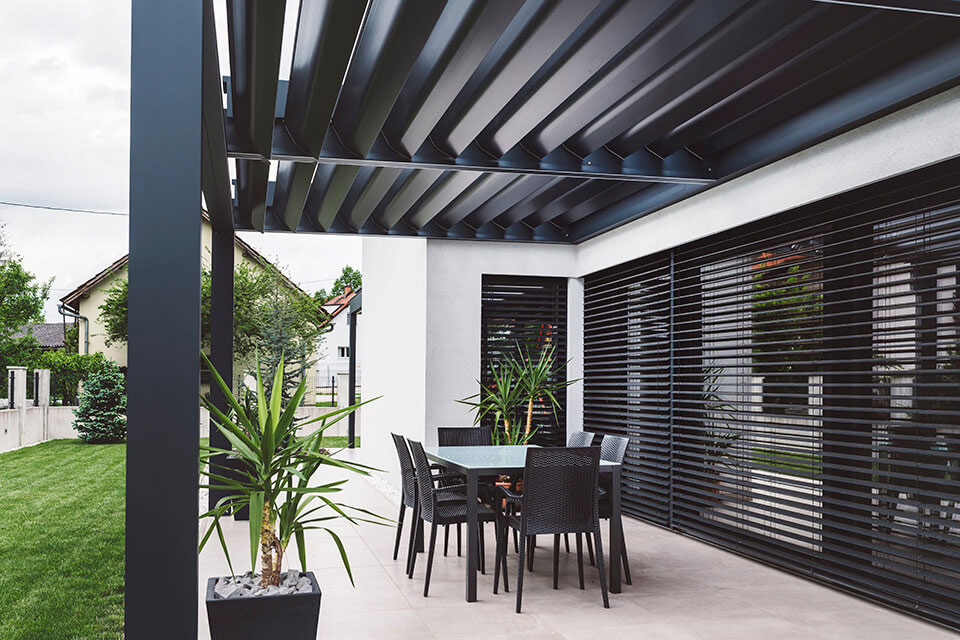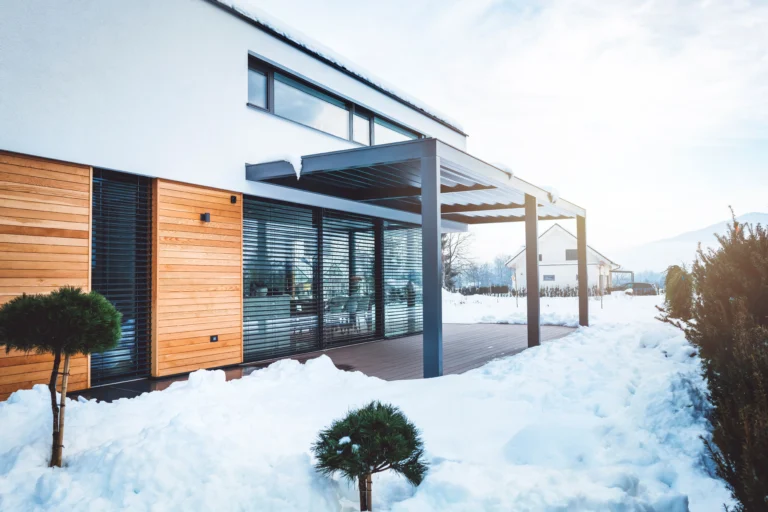Table of contents:
Solar heat gain
One of the most important parameters for windows is their thermal insulation. It protects the interior of the room from the conditions outside. In winter, this helps to keep the room warm and thus reduce heating expenses. In summer, on the other hand, with the windows closed, it helps to keep cool and limits the entry of warm air inside.
In summer, windows with glass having a low solar heat gain work well. This coefficient is expressed as a percentage (the higher the value, the more solar energy passes through the glazing) and is influenced, among other things, by the number of glass panes that make up the glazed unit. However, this can be a problem in winter when the small amount of solar energy cannot satisfactorily warm the interior of the room. This can result in an increase in heating bills.
Unfortunately, climate change means that in future years we can expect more and more hot days and fewer really cool days. Thus, any expenditure on air-conditioning and cooling rooms is more likely to contribute to the drain on the household budget than heating them.

Solar control glass
Another component of window joinery that can help fight the heat is solar control glass. Its main task is precisely to protect the interior from excessive heat.
Solar control glass is divided into three types: absorptive (Antisol), reflexive (Stopsol) and selective. The first two types are now used occasionally, while the most popular solution is selective glass.
Selective glass is coated several times with metal oxides. This allows to produce a coating that provides the desired level of reflection. This limits the amount of solar energy penetrating the interior and also prevents heat loss from the inside to the outside.
It is the most comprehensive solution available on the market. It maintains the colour neutrality of the glazed unit and combines high light transmission with protection against excessive heating of the room.
MS beyond WINDOWS offers three types of selective solar control glass: Combi Neutral, COOL-LITE SKN and SunGuard SuperNeutral. They differ primarily in the variants in which they exist. All available glass types are characterised by a high level of thermal insulation and an optimal ratio of light transmission to solar heat gain. Thus, a lot of natural light enters the interior, while it is still protected from excessive heat.

External covers
Together with windows with good parameters for protection against excessive heat inside the room, it is also worth installing external covers: roller shutters or facade blinds.
External covers slow down the exchange of heat between the interior and exterior of the building. This is because they form an additional thermal barrier in addition to the glazed unit.
An example of effective functioning can be mSun facade blinds, the installation of which on the facade of a building makes it possible to reduce the temperature in the room by up to 10 degrees Celsius (when the outside temperature reaches 35 degrees)! Installing external covers therefore allows to avoid the costs associated with air conditioning. In addition, it is better for the environment as it reduces the need for electricity.
Thus, the combination of external covers with solar control glass with good thermal insulation parameters will make it possible to significantly reduce the negative impact of the heat on the interiors of our home, flat or office. And, as a result, increase the comfort of staying, resting or working in a room.
See also: What to look for when buying roller shutters?
See also: How to cool a house in summer?
Terms of use
Even the best window joinery with top-quality glazed units and external covers will not succeed in fighting with the heat if the user does not follow certain rules that need to be respected when wishing to cool the room.
Above all, it is important to remember to keep the windows closed during the time of day with the most sunlight and the highest temperature. Heat naturally moves into colder areas, so in winter it will ‘escape’ from the interior, while in summer the opposite will happen.
It is therefore best to open the windows after dark and close them again in the morning, before the sun begins to heat up most strongly.
External covers should be fully closed. Only in this way will they fulfil their role as an additional thermal barrier and limit the transfer of heat into the room.
In addition to this, we should also remember to hydrate regularly, wear light and airy clothing and limit the use of heat-generating electrical appliances or minimise the cooking time of meals. The heat is no joke!



